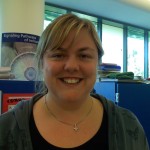A Dual Role for Complement in Atherosclerosis
| Registration |
|---|
|

Hosted by the Microbiology department.
Target Audience
Des Moines University faculty, staff, and students.
Objectives
- Describe the role of macrophages and inflammation in atherosclerosis,
- Define the role of complement component C1q in atherosclerosis.
- Evaluate if presented data support the hypothesis that non complement roles of C1q in atherosclerosis are atheroprotective.
Speaker

Deborah Fraser, PhD
Assistant Professor, Cell Biology, Immunology, Inflammatory Disease, California State Univeristy Long Beach
Dr. Fraser has over 15 years’ experience in the field of complement biology, using biochemical, molecular, cellular and immunological techniques to investigate the role of complement in inflammatory diseases. These include the design of novel anti-complement therapeutics for treatment of inflammatory disease (e.g. arthritis and multiple sclerosis) during her PhD. Dr. Fraser’s postdoctoral studies focused on the role of complement in directing phagocytic cells during apoptotic cell clearance, which may be an important step in the avoidance of autoimmunity in diseases such as Lupus, or resolution of inflammation. Her current studies are to identify if complement proteins play similar protective and anti-inflammatory roles in early stages of inflammatory diseases such as atherosclerosis, prior to the well-established detrimental aspects of activation of the full complement cascade.
Available Credit
- 1.00 CE Contact Hour(s)

 Facebook
Facebook X
X LinkedIn
LinkedIn Forward
Forward